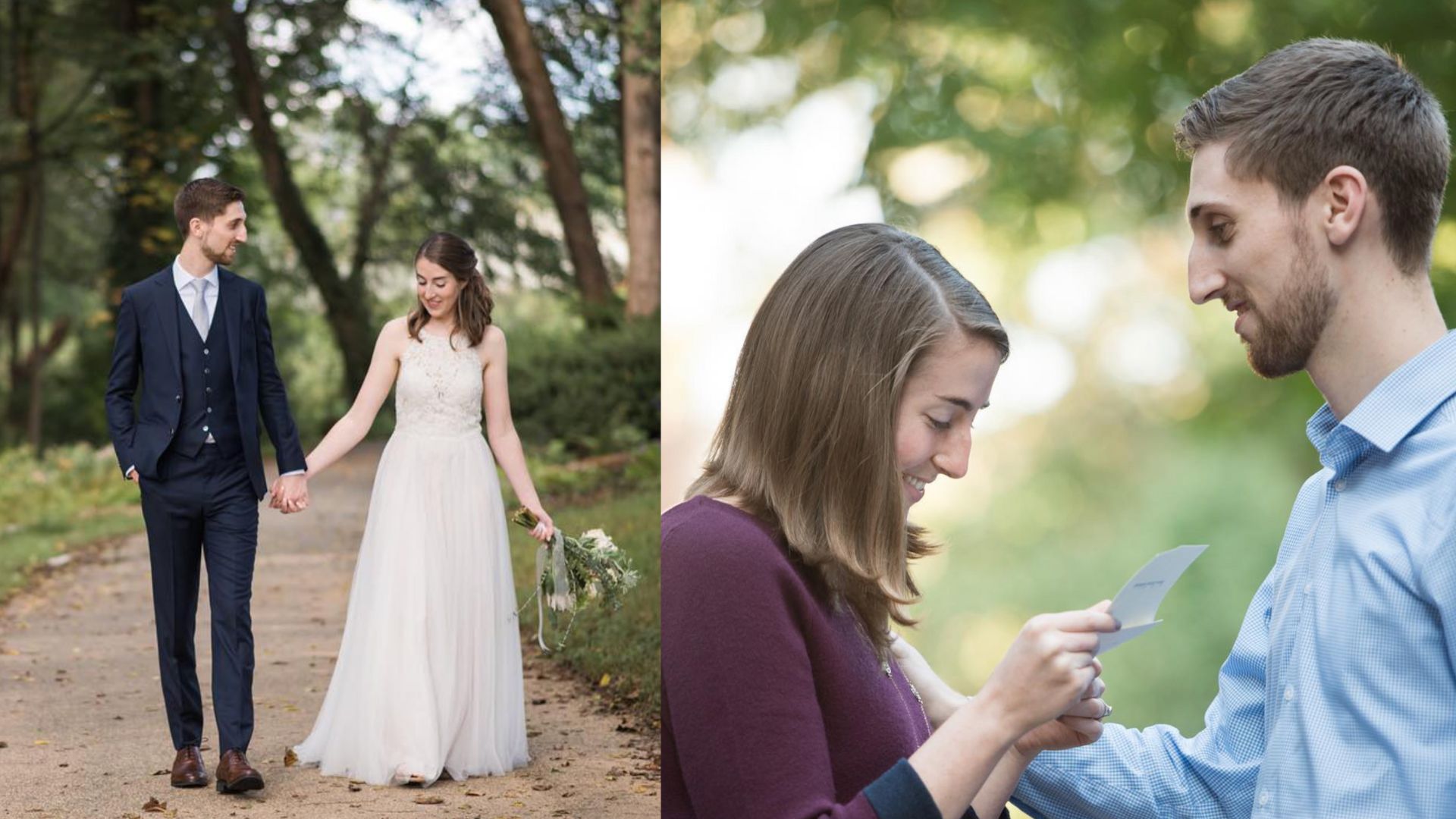Chelsea Wilkinson and Aaron Lutkowitz participated in the IFFP Couples Workshop before their wedding. Below they talk with IFFP about their experience planning the wedding and married life.
What was it Like to Plan your Interfaith Wedding?
We really enjoyed writing our interfaith ceremony. Rev. Julia provided insight and example templates, Rabbi Rain suggested some things to make the Jewish language more inclusive/egalitarian, and other couples have been so generous with their ceremony scripts – we were really able to tap into IFFP resources for inspiration. The best part was that we chose pieces that were meaningful to us now, but also reflected aspects of our respective religious traditions. Every element was there because we made a conscious choice to include it, and we found it more meaningful that way.

What Religious Elements did you incorporate and Why?
We put a twist on the Christian tradition of two readings by selecting poetry and prose excerpts for our siblings to read. We wanted the format to be somewhat familiar to guests, but also have a chance to share pieces of personal significance.
The Jewish practice of bestowing seven blessings was incorporated as well. We made a list of the seven blessings we want present in our marriage, assigned them to friends with particular connections to that blessing (for example, doctor friend got “health and mindfulness,” funny friend got “humor and fun,”), and had them write on that theme. I was especially excited to hear these, because they were a surprise to us until we heard them live during the ceremony!
We also loved the idea of placing each others’ rings on their index finger (Jewish folklore says this connects to the heart) and we moved the ring to our own ring fingers, indicating it is a choice of our own free will to marry.
It’s also worth noting what we chose not to incorporate. We looked up why Jewish ceremonies break a glass and were uninspired, so we did not include that. Dancing the hora felt too boisterous, so we did not have that either. Ultimately, we looked up the meaning behind every custom and only kept what we liked.

Were you Happy with How Your Interfaith Wedding Turned Out?
Yes. It is the part of the day of which we are most proud. It was a chance to show our personalities and our relationship in a meaningful way that is more difficult to do over dinner or dancing, for example. Guests were commenting on the ceremony more than anything else, as their favorite part of our wedding because it was different and personal, while simultaneously casual and reflecting the solemnity of the event.
What Advice Would You Offer to Other Interfaith Couples Looking to Plan Their Weddings?
First, I’d repeat Julia’s advice to us from the IFFP Couples Workshop which is to draw a circle around yourself and your needs and don’t let anyone push it. All four of our parents were lovely during the process, so we didn’t feel our circle tested, but the imagery empowered us, knowing that it was ok for us to do it our way.
Secondly, there’s no reason to start from scratch! Many people have planned interfaith ceremonies before, so I’d encourage them to look at what else has been done and work from there. I read tons of blogs and books for ideas as well.
What do you think are the next steps for recently married interfaith couples?
At our first IFFP event, “December Delights” (about navigating the holidays), a member shared a mantra she uses in her family – just because you do something once doesn’t mean you’re going to or have to do it every year. In the early years of our marriage, we plan to take everything year by year, or even moment by moment, doing what feels right to us then. We want to be able to establish rituals with our future children, but not feel so tied to things as our perspectives and circumstances change.


